As the weather starts to change and the fall colors begin to pop, the hustle and bustle remains steady around campus with students and staff settling into their respective routines. This fall the Resource Center for Persons with Disabilities (RCPD) office has been busy helping many students and staff get set up with accommodations among many other events and program planning. Assisting in these efforts are three practicum students and two interns that have joined RCPD this fall. RCPD is honored to welcome Priscilla Davies, Mudita Jagota, Terry O’Connor, Erin Caldwell, and Austin Housh to the team!
Each of these students brings their own amazing perspective and experience and Team RCPD looks forward to the contributions they will each make this year!
Read more about their roles and what they hope to gain from their experience with RCPD below:
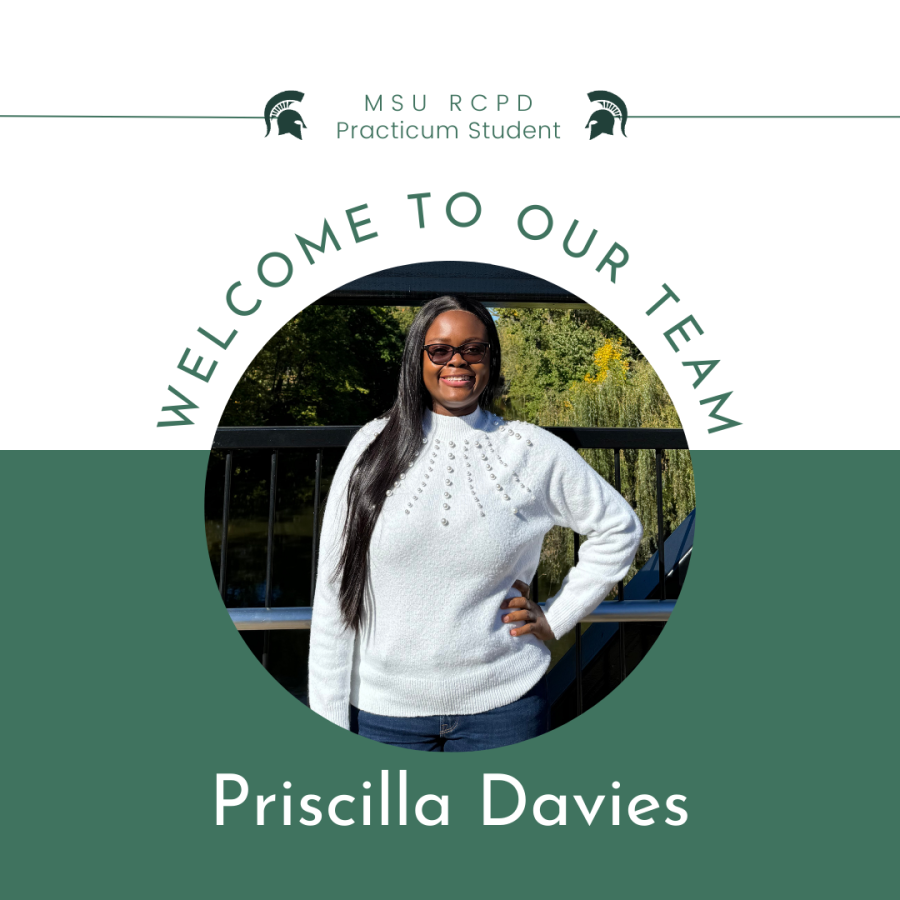
PRISCILLA DAVIES - Practicum
Q: What is your undergraduate degree in?
A: Psychology
Q: Explain what your practicum work will be about. What are your goals?
A: I will be working on temporary accommodations for students. This includes developing short
term accommodations for students who may not need permanent accommodations but require
support due to temporary conditions, such as recovery from surgery, and injury.
Q: What are you looking forward to the most about working with RCPD?
A: I look forward to contributing to the great programs at RCPD that empower students with
disabilities by offering resources, academic accommodations, support systems, and a
community where their voices and experiences are valued. I also hope to learn from and build
collaborative partnerships with other specialists at RCPD.
Q: What are you hoping to take away from this experience?
A: I hope to deepen my understanding of disability issues by gaining a nuanced understanding of
the challenges faced by persons with disabilities in the university community, including barriers
to access, stigma, and systemic inequalities. This knowledge will shape my future research,
advocacy, and professional practice. I also hope to develop greater empathy and a stronger
sense of social justice. This will equip me to be a more effective advocate for marginalized
communities, particularly those with disabilities.
Q: What are your future plans?
A: I plan to be a college professor in the near future.
MUDITA JAGOTA – Practicum
Q: What is your undergraduate degree in?
A: My undergraduate degree is in Psychology. Following that, I pursued two Master's degrees: one in
Applied Psychology and another in Rehabilitation Counseling. Currently, I am working towards
PhD in Counselor Education and Supervision, specializing in Disability and Rehabilitation. This
academic path reflects my passion for supporting individuals with disabilities, empowering them
through education, advocacy, and meaningful research.
Q: Explain what your practicum work will be about. What are your goals?
A: For my practicum, I will facilitate a community group specifically designed for students with
mobility disabilities. This group will provide a space for students to connect, share experiences,
and support each other. My primary goal is to foster a sense of community and belonging while
addressing the unique challenges faced by students with mobility disabilities in a college setting.
I also aim to facilitate discussions that empower students to develop a positive disability identity,
advocate for their needs, and connect them with appropriate resources. This project is
something I’m passionate about because I believe it’s vital for students with disabilities to feel
seen and supported in their academic environments.
Q: What are you looking forward to the most about working with RCPD?
A: I am most looking forward to interacting with students at the RCPD. The opportunity to engage
directly with students, understand their unique needs, and help them navigate the college
environment is incredibly rewarding for me. This interaction allows me to not only provide
support but also learn from their diverse perspectives, which continually deepens my
understanding of disability advocacy and enhances my skills as a counselor.
Q: What are you hoping to take away from this experience?
A: From this experience, I hope to refine my practical counseling skills, especially in working with
students with disabilities. I also aim to deepen my understanding of how disability services can
be further improved in higher education settings. By engaging with students and helping them
through their academic and personal journeys, I hope to gain more insight into the barriers they
face and explore innovative ways to address these challenges. Ultimately, this experience will
allow me to integrate my research interests with hands-on advocacy, preparing me to make a
broader impact in the field of disability and rehabilitation counseling.
Q: What are your future plans?
A: My future plans include pursuing a career in academia, focusing on disability research and
teaching. I am passionate about advancing disability studies, particularly in areas like positive
disability identity, caregiving research, and advocacy. Through my work, I aim to contribute to
research that enhances accessibility, support systems, and disability rights both in education and
the broader disability community. Teaching will allow me to mentor future counselors and
educators, equipping them to foster more inclusive environments and empower individuals with
disabilities.
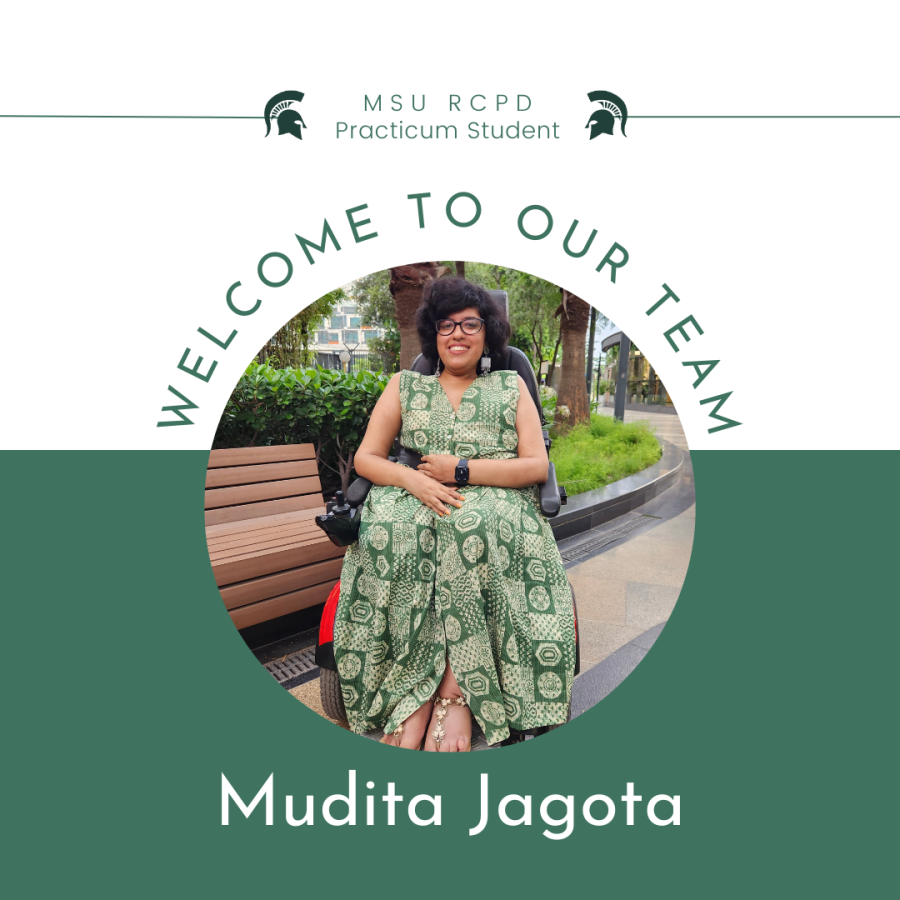
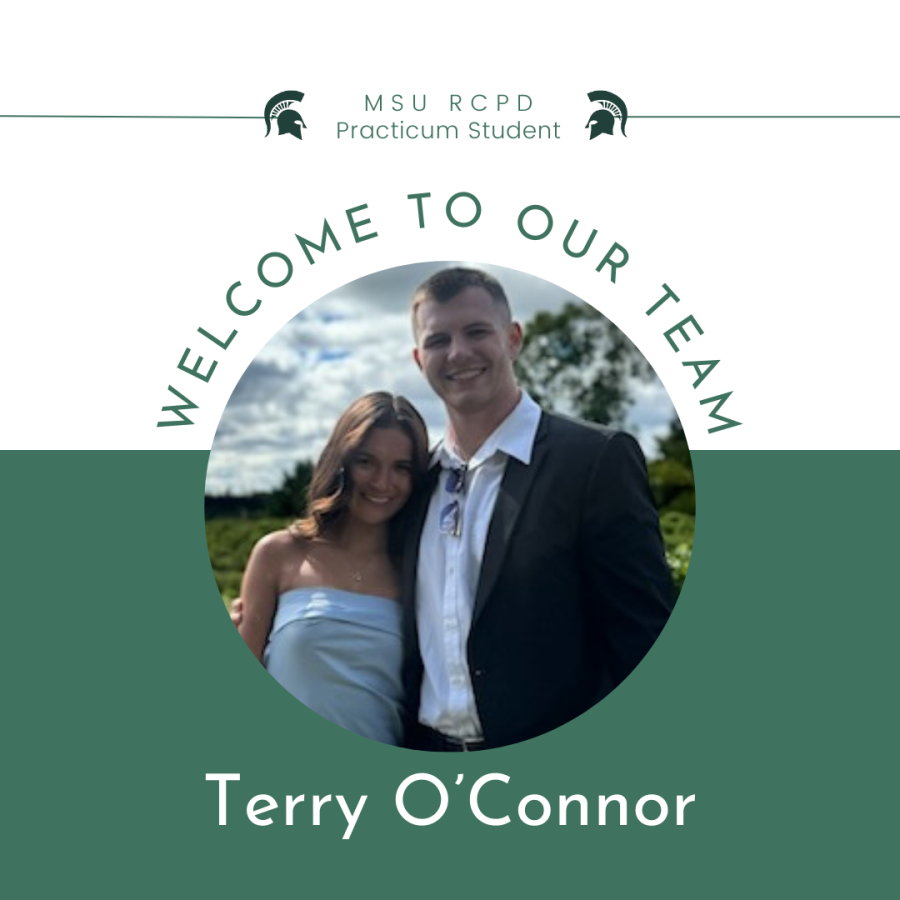
TERRY O’CONNOR – Practicum
Q: What is your undergraduate degree in?
A: My undergraduate degree was in kinesiology, while my master's degree is in rehab counseling.
Q: Explain what your practicum work will be about. What are your goals?
A: Overall, my practicum work will be focusing on aspects of executive functioning, and how
addressing the barriers that people have with them can improve parts of their lives like school,
work, socializing, and more. My main goals will be to learn and improve my counseling skills and
techniques, preparing for my future careers by applying similar concepts and processes, and
doing all I have mentioned while still providing unique and personalized care for each person I
work with.
Q: What are you looking forward to the most about working with RCPD?
A: I would say that I am most looking forward to being able to practice my counseling skills and
techniques in an environment that is supportive and encourages holistic approaches.
Q: What are you hoping to take away from this experience?
A: I am hoping to gain a realistic understanding of what working in an organization that serves
people with disabilities is like, whether it means focusing on policies, referrals to other
practitioners/programs, etc.
Q: What are your future plans?
A: Ideally, my main plan is to become a vocational rehab counselor for a federal or non-profit
agency, like the VA. However, I am honestly just hoping to find a position that involves creating
goals for people with disabilities and helping them find ways to accomplish said goals.
ERIN CALDWELL – BOND Intern
Q: What is your undergraduate degree in?
A: I am studying Social Work with minors in Human Behavior & Social Services and Resource
Management from the Individual, Family, and Societal Perspectives.
Q: Explain what your intern work will be about. What are your goals?
A: My intern work focuses on providing peer mentoring and support to MSU students with autism.
This means coaching students, facilitating peer mentor relationships between students and
BOND peer mentors, helping create weekly social events, and working on larger campus
initiatives to support students. My goal with BOND has always been to create a sense of
community for the students we serve, and help them make East Lansing feel more like home.
Q: What are you looking forward to the most about working with RCPD?
A: I am so excited for the plans we have begun for Autism Acceptance Month. We are putting a lot of
time and planning into this, and I think we are going to be able to do some really cool and unique
student facing things to promote autism acceptance at MSU.
Q: What are you hoping to take away from this experience?
A: I am hoping to take away a better sense of how to work with my community and fit my practice to
what they need. This opportunity has already been able to show me some of the skills and
strategies that I need for this.
Q: What are your future plans?
A: My next step after graduation this spring is to get my Masters in Social Work! I want to keep
studying community work and go on to continue working with students with disabilities in some
capacity.
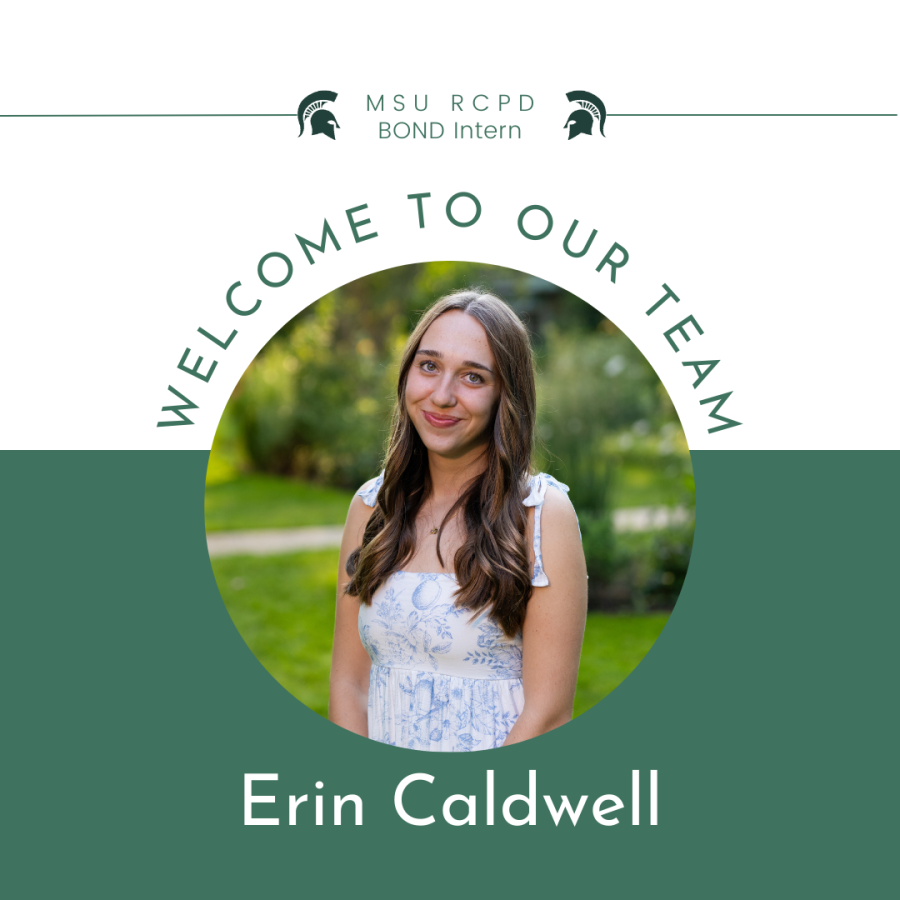
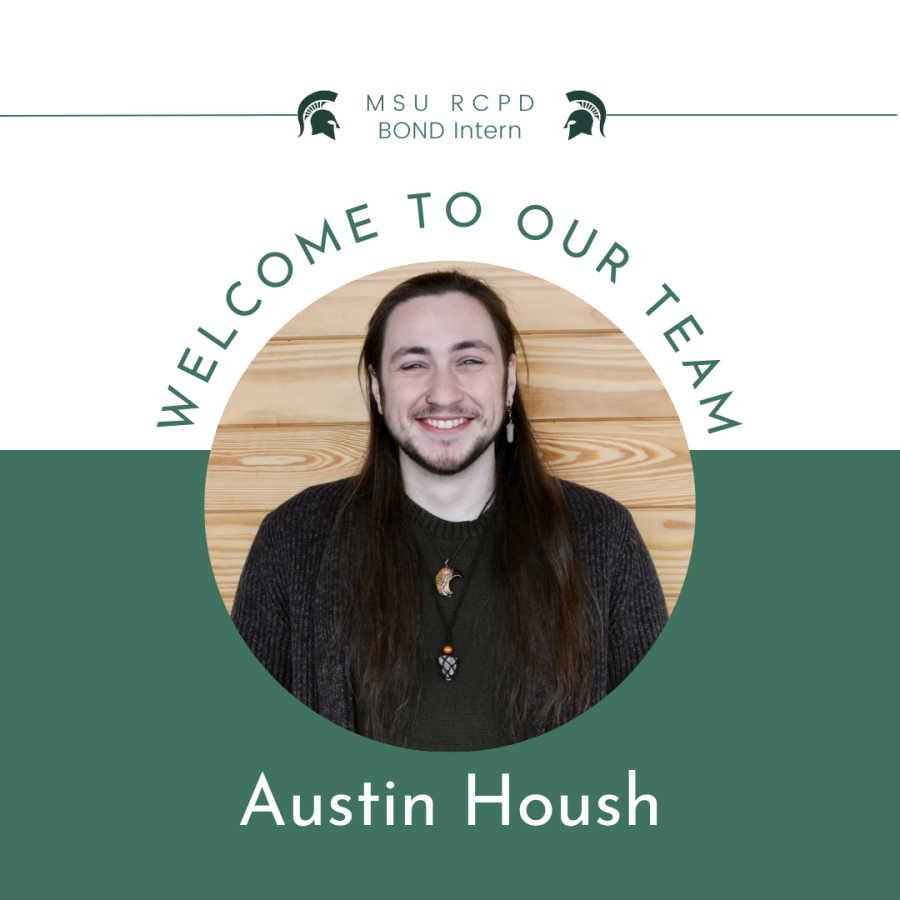
AUSTIN HOUSH – BOND Intern
Q: What is your undergraduate degree in?
A: I have a B.A. in psychology, and I am currently working toward an MSW degree.
Q: Explain what your intern work will be about. What are your goals?
A: My RCPD BOND internship involves 1:1 coaching sessions, matching students with peer
mentors, and planning BOND events. My main goal is to support autistic students during their
transition to MSU, with significant emphasis on the development of critical self-advocacy skills.
Q: What are you looking forward to the most about working with RCPD/BOND Program?
A: In a society (and an institution) that often marginalizes disabled community members, I hope to
foster a sense of community and solidarity among autistic and neurodiverse students. Through
years of community-building, I have learned that when institutions fail us, we must find strength,
hope, and support in one another.
Q: What are you hoping to take away from this experience?
A: I hope to improve my ability to work with students from a wide variety of backgrounds, and to
connect the struggles of neurodivergent community members with the struggles of community
members with other marginalized identities.
Q: What are your future plans?
A: I have no idea! In a dream world, I would build and live in a cabin in the woods...but also have
high-speed internet. Aside from that, all I need is enough money to pay my bills.